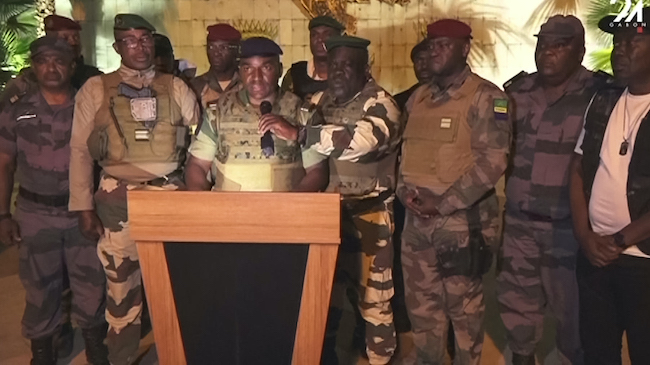Military officers in Gabon have seized control of the country, declaring the nullification of the recent election results, which had declared President Ali Bongo the winner. The soldiers, identifying themselves as members of The Committee of Transition and Restoration of Institutions, cited the goal of safeguarding peace while ending the existing regime.
The election’s runner-up, Albert Ondo Ossa, alleged irregularities, a claim dismissed by Bongo’s team.
Here are five significant points about Gabon following the military takeover:
The Bongos: Gabon has seen the Bongo family dominate its leadership for over 55 out of 63 years since gaining independence in 1960. Ali Bongo succeeded his father Omar in 2009 and has faced criticism, including claims of being unfit to rule following a stroke in 2018.
Oil Wealth: Gabon’s substantial per-capita GDP stems mainly from its oil wealth and its small population of 2.3 million. Oil contributes 60% of the country’s revenues, but a third of the population lives below the $5.50 per day poverty line.
Environmental Riches: The nation’s forests cover 88% of its land and provide a sanctuary for various wildlife species. Known as Africa’s “last Eden,” Gabon has established conservation efforts, contributing to the recovery of endangered African forest elephants.
Medicinal Roots: Gabon possesses a psychoactive root used to create a drug that has shown promise in treating addiction. The iboga root is used in the “bwiti” ritual, and its derivative, ibogaine, has been used to help drug addicts overcome their addiction.
Football Star: Former Chelsea forward Pierre-Emerick Aubameyang, a prominent Gabonese international player, rose to prominence as a top striker. He played for Borussia Dortmund and Arsenal, even becoming a joint top-scorer in the Premier League. However, his career has seen ups and downs, including a move to Barcelona and later joining Olympique de Marseille.




